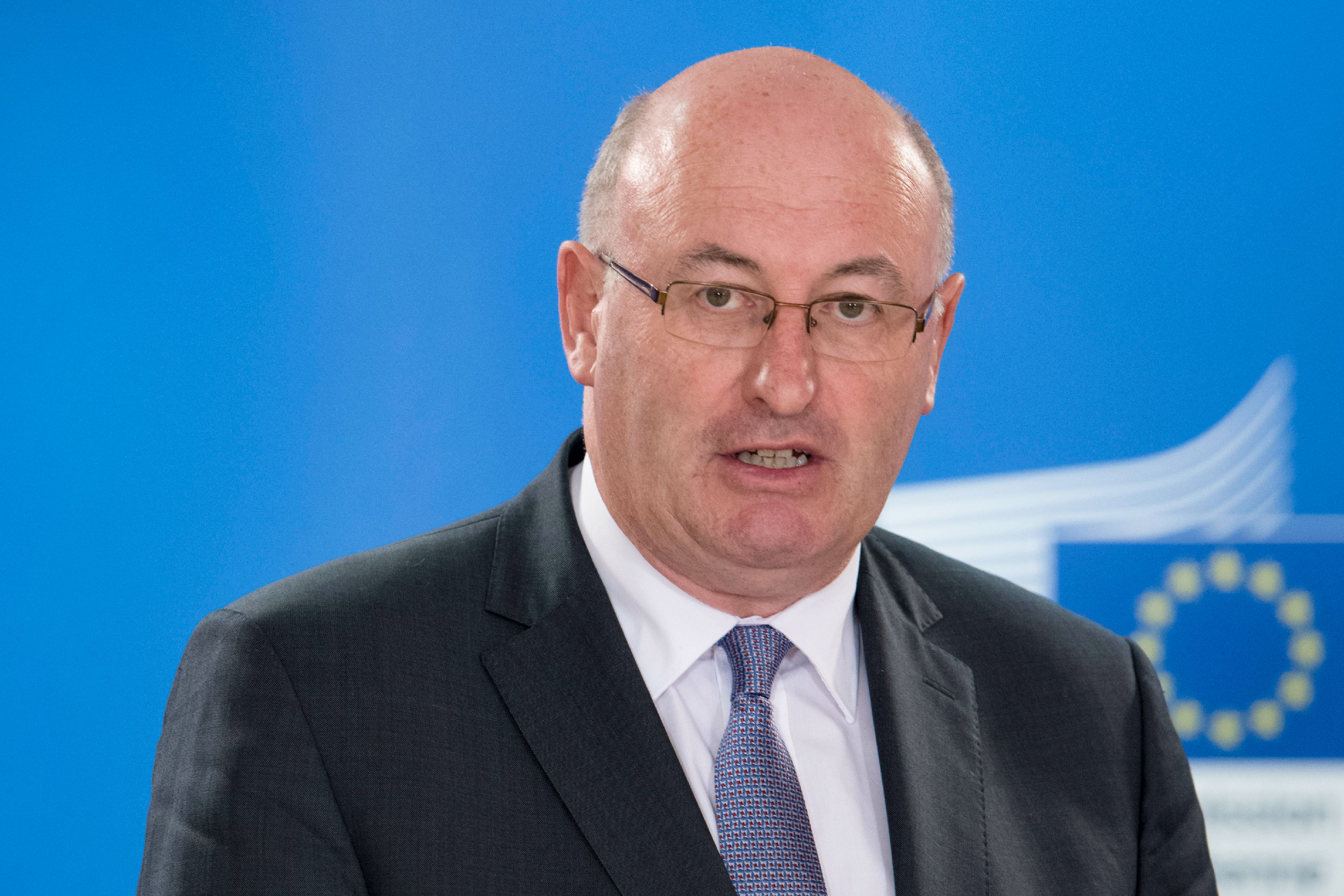On Friday last, I took part in a panel discussion at the Centre for European Policy Studies in Brussels on the theme “Will there be a mid-term review in 2017? And, if so, what should it do?” My contribution focused on the timing and procedural issues which will influence the prospect of a substantive early review of the CAP basic acts. Other speakers on the panel (Allan Buckwell from IEEP, Rolf Moehler formerly of DG AGRI and Paolo de Castro MEP from the Socialists and Democrats Group in the European Parliament) addressed what the contents of such a review might or should be.
The purpose of the event was to formally launch the book The Political Economy of the 2014-2020 Common Agricultural Policy: an Imperfect Storm which has been edited by Johann Swinnen and published by CEPS together with Rowman & Littlefield International. This book is a fascinating series of essays on the story behind the 2013 reform but also includes three chapters looking ahead to the future by three of Friday’s panellists, including one which I contributed. A copy of the book is freely available on the CEPS website.
There are a number of milestones set out in the CAP legislation which require the Commission either to report on the consequences of the last reform or to bring forward proposals (including the impact of greening and especially of ecological focus areas) and which could trigger more substantial proposals to revise the CAP regulations. In addition, Commissioner Hogan has outlined his own political agenda and that of this Commission which includes proposals on simplification as well as strengthening the link between the CAP and rural job creation.
Although some of these trigger points occur in 2016 (including the mid-term revision of the EU’s Multi-annual Framework (MFF) 2014-2020), I anticipate that the most likely trigger for substantial Commission proposals, if they were to be made, would be at the end of 2017 to coincide with the publication by the Commission of its proposals for the next MFF after 2020.
This will be a crucial document as it will set out the Commission’s view of the EU’s priorities in the years after 2020 including the level of the CAP budget that it deems appropriate, even if it could take up to a further two years before agreement is reached by the European Council and the Parliament gives its consent. One could expect that the environmental benefits (or lack of them) arising from the new greening payment which accounts for 30% of the CAP Pillar 1 budget might play a role as the negotiations take place within the Commission College before the MFF proposal is made.
On the last occasion, publication of the Commission’s MFF proposals in October 2011 was accompanied by a proposal for a major rewriting of all four of the CAP basic acts (direct payments, single common market organisation, rural development and horizontal issues). This reflected the outcome of a reform process which the Commission had launched the previous year in a Communication outlining various options for reform accompanied by an impact assessment, and which had been kick-started some years earlier under the French Presidency at Annecy in July 2008.
The situation is clearly different when the Commission comes to propose its next MFF at the end of 2017. Member states have been struggling to implement the last reform, and the first payments to farmers under the new rules were only delivered last month. Very limited evidence will be available on the impact of the new reforms even in 2 years’ time. The Commission’s political agenda does not suggest that a further major reform is on the agenda and, with so much else on its plate, it will be reluctant to re-open old battlelines around the CAP.
The legislative timetable complicates any prospects for a major reform because it is likely that negotiations would be completed in 2019 with a new Parliament and a new Commission. In any case, the enormous amount of flexibility which is given to member states under the new CAP means that member states can already largely mould the CAP to suit their political preferences without requiring a wholesale rewriting of the basic rules.
At the same time, the Council has flagged that simplification may require some changes to the basic acts, and one could envisage other changes to some of the parameters in the basic acts without completely rewriting them. For example, will the Commission propose further moves towards regional uniformity of direct payments after 2020? Will the Commission listen to those member states and MEPs in the Parliament which wish to see increased intervention prices? Would the Commission propose even greater flexibility to shift funds between the two Pillars? Will the broad framework of greening remain untouched?
My conclusion is that 2017 will be an important year for the CAP but we should not be misled by the experience of the Fischler Mid-Term Review in 2003 or the Fischer-Boel Health Check in 2008 to assume that a possible Hogan Mid-Term Review would take the same form.
In my view, it is more likely that we will see a rolling series of proposals for incremental changes in the various basic acts over the period of the Commissioner’s tenure, designed to address specific problems and issues, but without fundamentally changing the structure of the 2013 reform.
Of course, like all speculations about the future, this one could also be wrong…..
My presentation at the CEPS meeting is attached below
This post was written by Alan Matthews.
Photo credit: Euractiv

Europe's common agricultural policy is broken – let's fix it!

